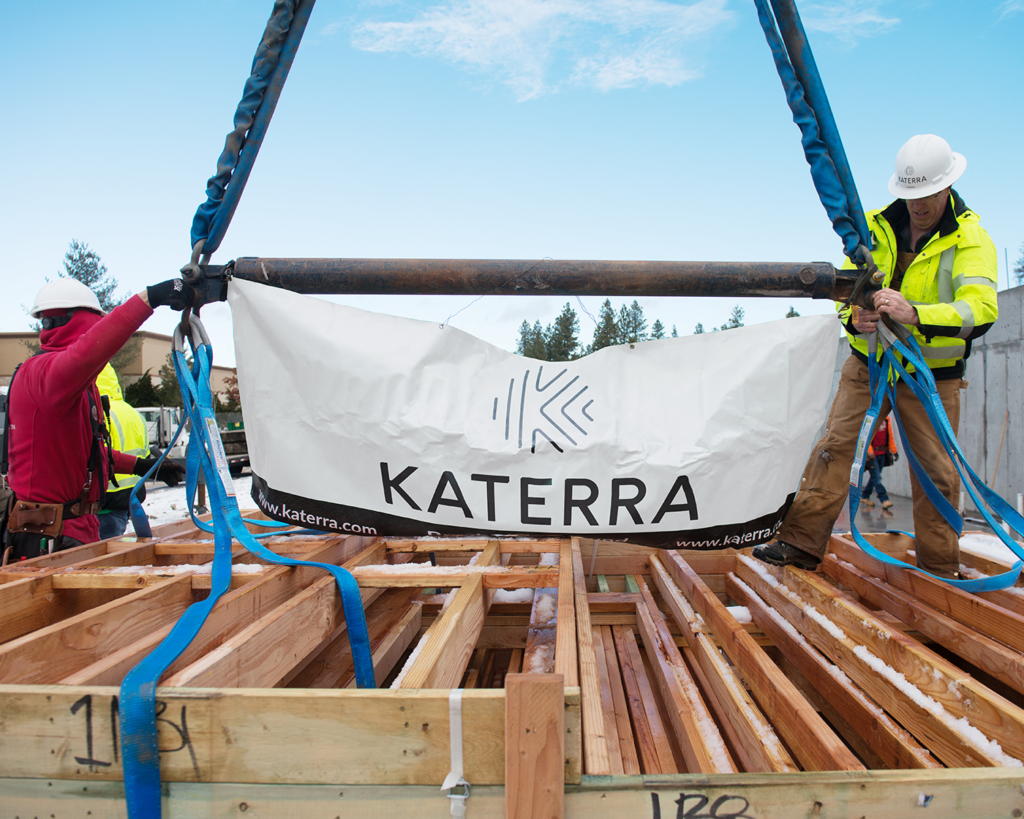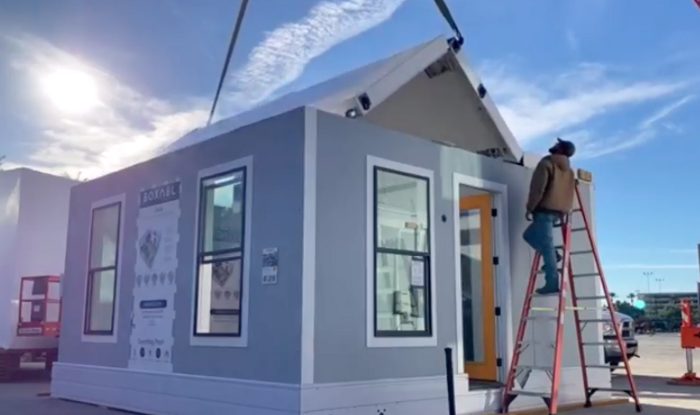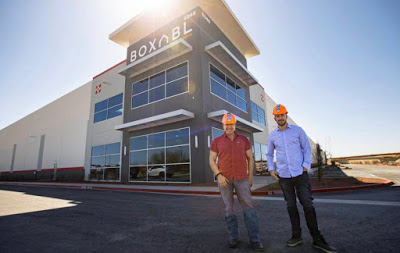Starting a modular or offsite factory in the US is a tough road to success. Looking at Katerra, one of the biggest failures in our industry, you have to ask yourself who will be next?

This is condensed from an article in Business Insider (Feb 6, 2023)
Less than 15 miles from the glittering casinos of the Las Vegas Strip, Boxabl’s owners want to build one of the country’s largest manufacturing complexes, capable of churning out 100,000 or more prefabricated homes a year that will retail for as little as $60,000 each.

Much of Boxabl’s buzz can be attributed to Galiano Tiramani, a 6-foot-4 mulleted millennial who has become the company’s pitchman and provocateur, dropping cars onto Casitas and staging drag races between Teslas and trucks hitched to the homes.
Of the roughly $140 million in funding that Boxabl has received, over $100 million has come from the public, according to Tiramani. Tiramani says the company has a waiting list 160,000 orders deep, demonstrating the enthusiasm for Boxabl’s mission and Tiramani’s theatrical marketing style.
Now Boxabl is seeking $300 million of capital to expand its assembly line production, engineering, and compact shipping of its mass-produced single and multifamily homes.

But let’s look at the numbers. They had revenue of only $10.3M in 2022. That was produced by initial funding of $150M. They have 150,000 names on their Casita reservation list, which is about $9.0 billion in potential sales.
They already have two factories in Vegas and want to open a million sq ft factory in late 2026. If this new factory has the ability to turn out 100,000 homes a year, that would be 10% of the estimated 1,000,000 new homes built a year. That’s almost 2,000 homes a week. Simply audacious!
Now let’s take a look at their website. In their FAQ section, this question and answer appear today (Feb 7, 2023)
What codes do they comply with?
Boxabl buildings conform to and exceed the requirements of most any building code. Boxabl will come with state modular approval. Modular approval is great because it reduces local inspections and the plans are pre approved at the state level. We don’t have that modular approval just yet but it should be ready soon. Additionally, the Casita product is certified as a “park model RV in accordance with ANSI 119.5 in all 50 states!
In other words, they don’t have the necessary approvals for people to live in their homes with the exception of where RV’s are allowed.
Board of Directors
Until recently, the company’s three-member board included a man whom a judge identified in a federal civil lawsuit as a conspirator in a plot to hide the Iranian government’s ownership in a New York City office tower.
On January 17, a little more than a week after Insider asked Tiramani about that man, Hamid Firooznia, and his role at Boxabl, the company announced it had “removed” him.
While the tie is now severed, institutional investors of the stripe that Boxabl is courting are sensitive to perceptions. The connection to Firooznia may raise thorny questions.
“If there are red flags, depending on the investor, it might not mean anything, or it might mean a lot,” Evan Levy, a cohead of the law firm Weil’s real-estate practice, said.
In the year or so since its first factory has been in operation, the company has built fewer than 400 homes and is able to assemble as few as two homes a day, Tiramani said. The company will need to radically scale that rate to meet its goals of producing many thousands of homes annually.
Of those houses, 332 were built as workforce housing for a company in Arizona and for the US military in Guantanamo Bay detention camp in Cuba.
Unlike larger buyers who have bought blocks of Casita homes, individual purchasers who have put down money for a Casita have received little information on when their units will be delivered. There are signs of discontent. Of the roughly 8,000 down payments totaling $5.4 million that have been placed for Casitas, a little over $1 million has been refunded at the request of customers, Tiramani said.
A combative entrepreneur

Tiramani grew up in Greenwich, Connecticut, and attended Sacred Heart University. During college, he showed early flashes of his maverick persona, renting out a Greenwich home with friends that he dubbed the “hobo mansion,” where he hosted raucous parties that drew complaints from neighbors.
He and friends built a muddy track in the backyard for riding motorbikes, an activity that spilled over into the surrounding posh neighborhood and even the mansion itself. In a rap music video filmed at the property in 2015, Tiramani can be seen in an American flag shirt with two women on his arms standing next to a man with a pistol on his hip.
Later that year, the home was seized in a foreclosure. One evening, police entered the property through a broken garage door after confusing Tiramani for a burglar.
“Get the fuck out of here, you don’t have a warrant,” Tiramani told police while standing in his underwear as they trained their guns on him, according to court documents and Tiramani’s recollection of the incident. Tiramani subsequently sued the Greenwich Police Department, accusing it of warrantless entry. A judge threw out the case.
After receiving a degree in international business in 2015, Tiramani moved to California and founded a cannabis-growing and hash-oil-distilling company that benefited from the legalization of recreational marijuana use in the state the year after. He also founded a bitcoin exchange that operated from 2013 to 2019.
Gary Fleisher, Contributing Editor



